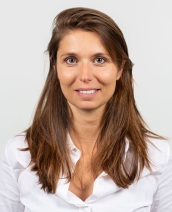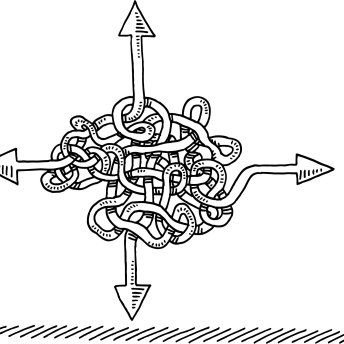Florence Carlot
Partner
Florence has supported many utilities & alternative energy projects. She has gained deep experience in investment opportunity assessment and market-entry strategy.

Areas of Focus
Education
Past Experience

Florence is a Partner based in the Brussels office and leading the “Energy & Utility” practice in Belgium. She is also an active member of the “Strategy & Organization” practice.
Florence has been working within the European energy and utilities sector for over 18 years. She has worked with several leading energy companies and utilities all over Europe , enabling large operational and strategic-change initiatives in the wholesale, generation, network and retail areas of business. Through her various experience, Florence has developed a strong understanding of the strategic challenges and decision-making processes energy companies face along their whole value chain.
Her experience has been gathered from a variety of roles in corporate strategy, investment opportunities assessment and transactions, market-entry strategy, business optimization and project management.
She is an experienced consultant who is used to balancing high-level shaping with detailed analysis to find and deliver pragmatic solutions to problems on numerous topics.
Prior to joining Arthur D. Little, Florence worked for other consultancies, mainly in the utility and energy industry. Florence holds a Commercial Sciences master’s degree from ICHEC. She is fluent in French, English, and Dutch.
In addition to her consulting career, Florence is the happy mother of two beautiful daughters.

The race to smart home energy management systems

Hydrogen


Taking demand-side response to the household level


Energy crisis & beyond

The rise of the energy community & its lifeline to the battery


Energy retailers’ business model

Industrial energy management


Strategy: How to cope with the uncertainties of tomorrow’s new world

How to enable the company of tomorrow

Energy retailers: Facing the toughest transition in the energy sector

What’s next for TSOs?

Flexibility services: Catch me if you can!

Future of batteries

Balancing the positives and negatives – The rise of the battery ecosystem

Virtual Power Plants – At the heart of the energy transition

Agility in managing electricity grids: The case for batteries

Battery Storage: Still Too Early?

Florence is a Partner based in the Brussels office and leading the “Energy & Utility” practice in Belgium. She is also an active member of the “Strategy & Organization” practice.
Florence has been working within the European energy and utilities sector for over 18 years. She has worked with several leading energy companies and utilities all over Europe , enabling large operational and strategic-change initiatives in the wholesale, generation, network and retail areas of business. Through her various experience, Florence has developed a strong understanding of the strategic challenges and decision-making processes energy companies face along their whole value chain.
Her experience has been gathered from a variety of roles in corporate strategy, investment opportunities assessment and transactions, market-entry strategy, business optimization and project management.
She is an experienced consultant who is used to balancing high-level shaping with detailed analysis to find and deliver pragmatic solutions to problems on numerous topics.
Prior to joining Arthur D. Little, Florence worked for other consultancies, mainly in the utility and energy industry. Florence holds a Commercial Sciences master’s degree from ICHEC. She is fluent in French, English, and Dutch.
In addition to her consulting career, Florence is the happy mother of two beautiful daughters.

The race to smart home energy management systems

Hydrogen


Taking demand-side response to the household level


Energy crisis & beyond

The rise of the energy community & its lifeline to the battery


Energy retailers’ business model

Industrial energy management


Strategy: How to cope with the uncertainties of tomorrow’s new world

How to enable the company of tomorrow

Energy retailers: Facing the toughest transition in the energy sector

What’s next for TSOs?

Flexibility services: Catch me if you can!

Future of batteries

Balancing the positives and negatives – The rise of the battery ecosystem

Virtual Power Plants – At the heart of the energy transition

Agility in managing electricity grids: The case for batteries

Battery Storage: Still Too Early?
More About Florence
- Institut Catholique des Hautes Etudes Commerciales (ICHEC) – BelgiumMaster in Commercial Sciences, specializing in International Management
- Baringa PartnersManager
- Sia PartnersSenior Consultant
- AccentureBusiness Analyst
